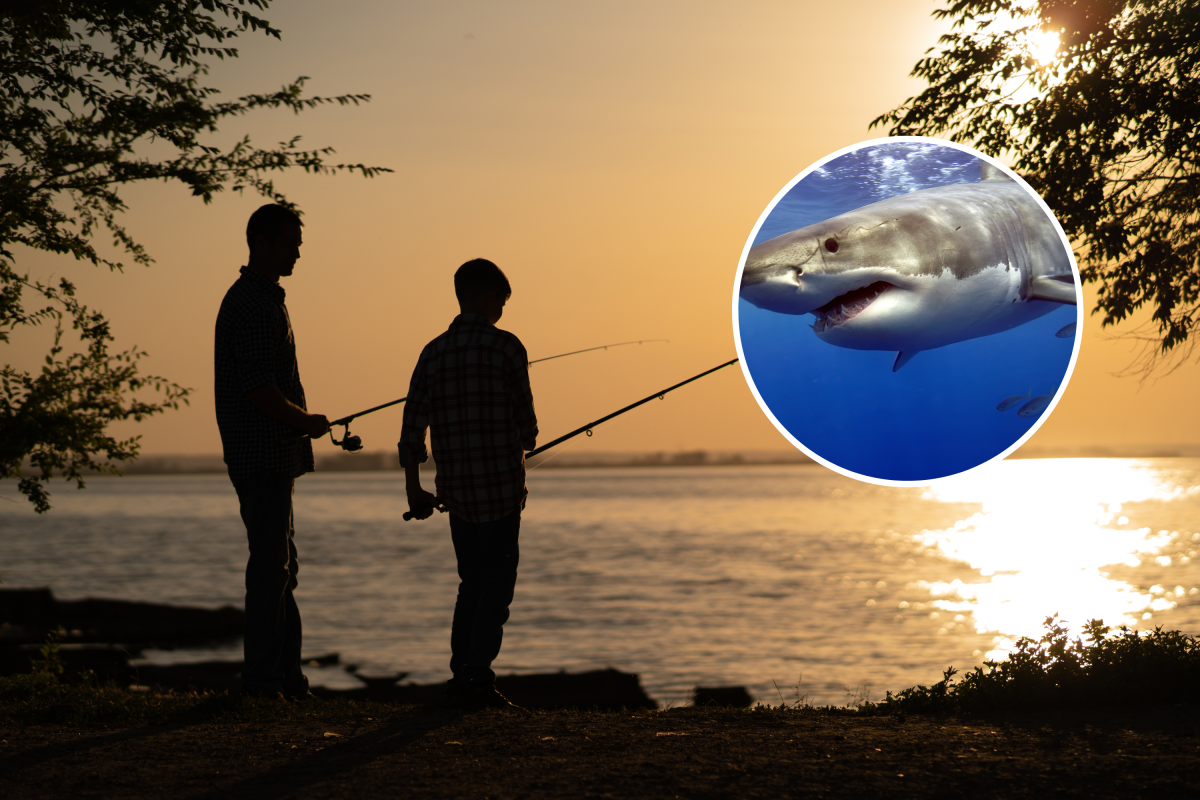A teen in Australia was rushed to hospital after a great white shark latched onto his leg during a fishing trip.
His dad leaped to the rescue and used his bare hands to rescue his son by pulling the predator off his leg, local media outlet 7News reported.
Nathan Ness, 16, was on a family trip near Glenelg, South Australia, when his fishing hook accidentally latched onto a great white.
Being over two miles offshore, the teen began to reel the catch in. However, as Ness went to capture his incredible catch with a photograph, the white pointer sank its teeth into his leg, 7News reported.
His father, Michael Hess, did not hesitate to reach for the shark.
At first, the teen's dad was scared the shark was not going to release his son's leg.
"I was pretty scared, actually," Ness told 7News. "I reached in, pulled its mouth open, and I let go, and it fell back into the water."
The son was rushed to the Royal Adelaide Hospital for his injuries.
"The 16-year-old boy has three quite deep lacerations—or teeth marks to the lower leg," Craig Murdy, a spokesperson for the SA Ambulance told 7News. "The bleeding was controlled by the time we got here."
Newsweek reached out to the SA Ambulance for comment.
Great white sharks are widespread in Australia's waters. Although shark attacks are rare, the predators can attack humans when they feel threatened.
The species have several rows of extremely sharp teeth, specialized for ripping into flesh. This means that when bites do happen, they are a medical emergency.
Great white sharks, also known as white pointer sharks, are among the big three species most likely to hurt humans unprovoked. The bull and tiger sharks are also in the big three, as they are known for having more aggressive temperaments than others.

There have only been 47 unprovoked shark attacks in the South Australia region since records began in 1700, according to the International Shark Attack File.
Most shark attacks happen in New South Wales, the file reports, with 272 unprovoked attacks.
Despite the severe injury, the 16-year-old does not appear fazed, and has even expressed the desire to go out fishing again soon, 7News reported. His father told the news outlet, however, that he does not think this will be happening as soon as he wishes.
Great white sharks can occasionally be caught on fishing lines by accident. As the species are considered vulnerable, it is not legal for fishermen to keep the catch, so if accidentally caught, it is always thrown back.
Do you have a tip on a science story that Newsweek should be covering? Do you have a question about great white shark? Let us know via science@newsweek.com.
Uncommon Knowledge
Newsweek is committed to challenging conventional wisdom and finding connections in the search for common ground.
Newsweek is committed to challenging conventional wisdom and finding connections in the search for common ground.
About the writer
Robyn White is a Newsweek Nature Reporter based in London, UK. Her focus is reporting on wildlife, science and the ... Read more
To read how Newsweek uses AI as a newsroom tool, Click here.








